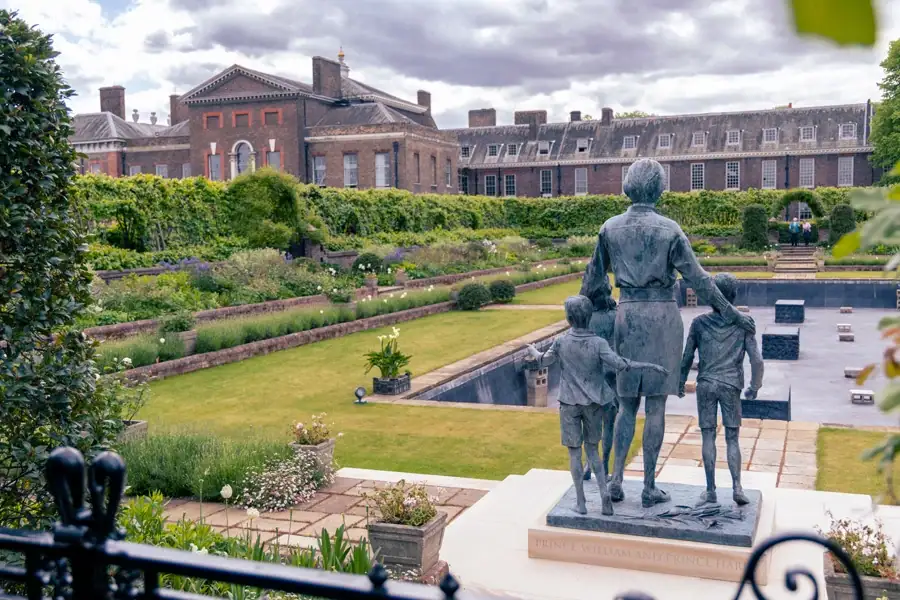Princess Diana stood not just as a passionate advocate but as one of her generation’s most revered and cherished figures. The unexpected passing of the Princess of Wales on August 31, 1997, brought profound grief to the world.
In the wake of her sudden passing, many questions regarding the existence of a valid Will arose. Given her immense fame and public persona, Princess Diana was strongly encouraged to create a Will. While she did have a valid Last Will and Testament, the process of distributing her property and assets proved to be riddled with complexities and challenges, providing valuable lessons for everyone to reflect upon while examining her estate plan.
Princess Diana’s Will: Who Was Named?
In Princess Diana’s Royal Estate Plan, several crucial components and individuals played significant roles. In her Last Will and Testament, she designated multiple beneficiaries, including her two main heirs, Prince William and Prince Harry, along with her seventeen godchildren and her trusted butler, Paul Burrell.
However, an important aspect missing from her estate plan, leading to numerous posthumous challenges, was the appointment of an executor or trustee. These are the individuals entrusted with overseeing and ensuring the proper distribution of one’s estate in accordance with their wishes. For Princess Diana’s estate plan, her mother and sister were named as the executors and trustees.
What Went Wrong With Princess Diana’s Estate Plan
Several years after Princess Diana’s death, an undisclosed letter appeared discussing specific wishes in the event of her death. This document, known as the Letter of Wishes, expressed her desire for all her jewelry and three-quarters of her personal belongings to be passed down to Prince William and Prince Harry. The document also stated the remaining one-fourth of her personal belongings were to be inherited by her 17 godchildren. However, following Diana’s passing, her estate’s executors—her mother and sister—contested the Will in probate court, citing a “variance” that required legal clarification.
As a result of the court decision, Prince Harry and Prince William faced a delay in receiving their inheritances and were required to reach the age of 30 instead of 25 to gain access to their shares. On the other hand, each of Diana’s 17 godchildren received only a single item from her collection of personal belongings, rather than one-quarter of the total value of all her personal property.
What Can We Learn From Princess Diana’s Estate Plan?
Princess Diana’s complex estate plan situation serves as a crucial lesson for everyone and highlights the importance of addressing one’s wishes directly in a legally verified Trust or Will. In Princess Diana’s case, some of her final wishes were, unfortunately, not honored as the letter lacked legal validity and could not stand up in court.
No matter how famous or esteemed, legal matters do not discriminate based on status or title. To ensure that your estate is distributed according to your specific wishes, it is imperative to clearly outline them in a properly vetted Trust or Will that hold legal weight.
Not only were her final wishes brought into question, but she was young and her death was unexpected. While some believe estate planning is reserved for older individuals with substantial wealth, ensuring your estate plan accurately reflects your wishes is vital. Establishing a Trust or Will early in life guarantees that your legacy will be preserved as intended, should anything unforeseen happen.
Speak With an Estate Planning Lawyer at Fratello Law
Princess Diana’s estate planning experience teaches us to address our wishes directly in a verified legal document, regardless of fame, status, or age. Early estate planning ensures that our loved ones receive our assets in the manner we desire, securing their future in the event of any unfortunate circumstances.
With a wealth of knowledge and over 120 years of combined experience, our Fratello Law attorneys take pride in providing a comfortable environment for clients to discuss their concerns and seek answers to their questions. Our small firm has a big heart, and we invite you to schedule a no-cost consultation with one of our team members. You can do this by filling out our contact form or simply giving us a call at (631) 406-5580 today.

